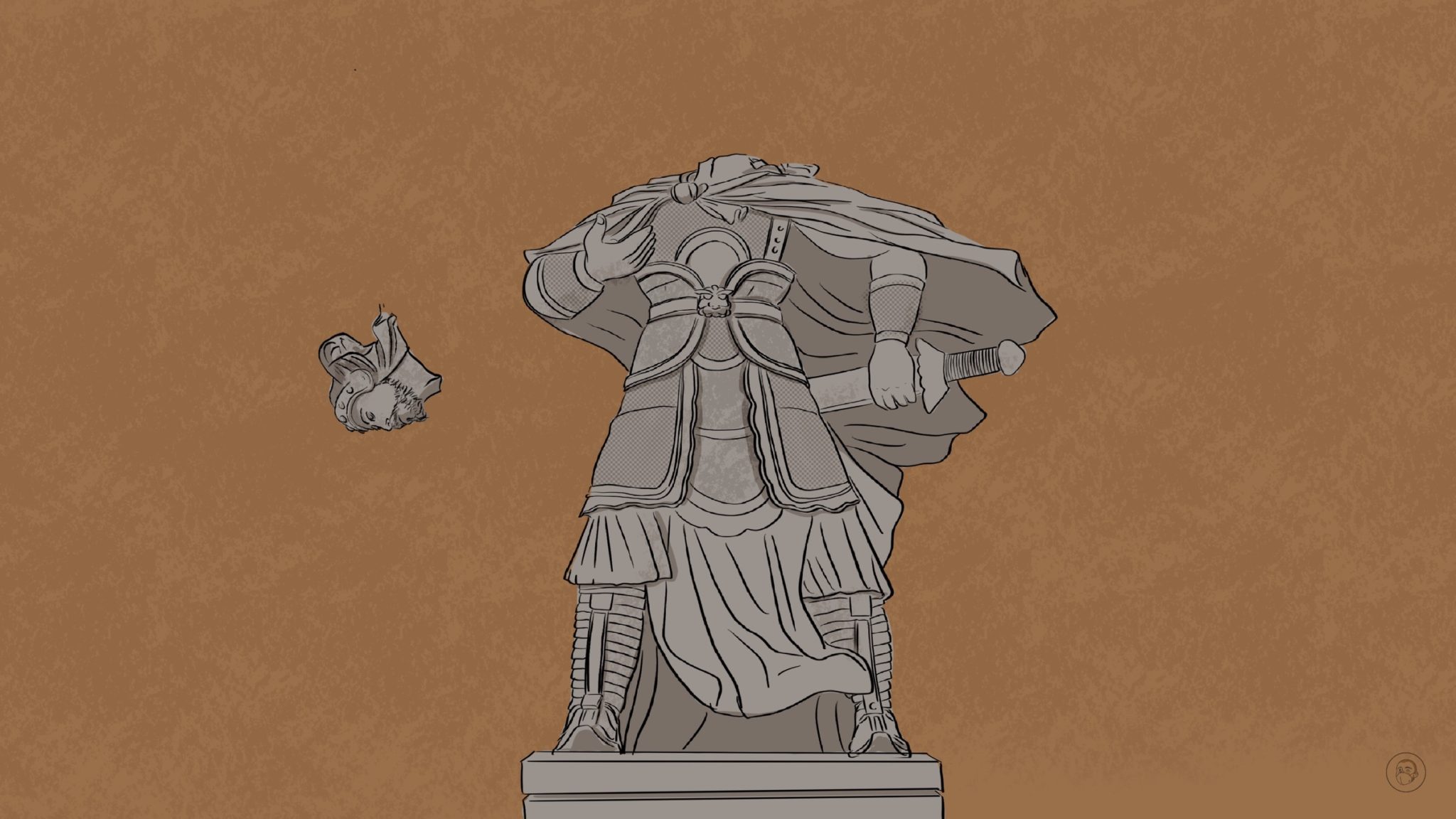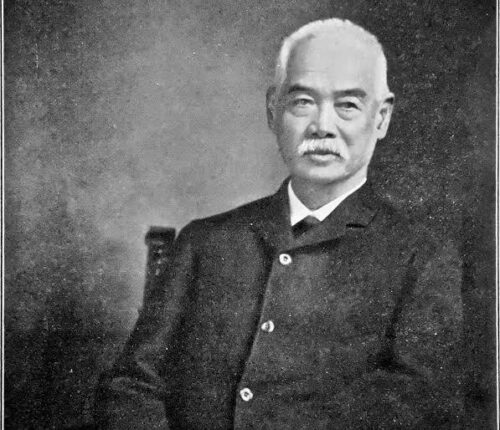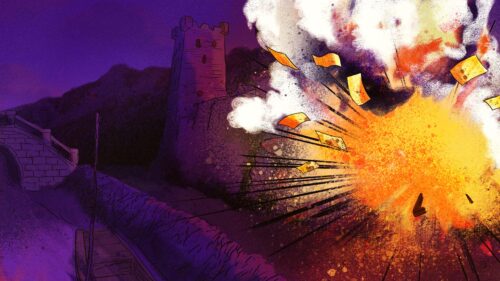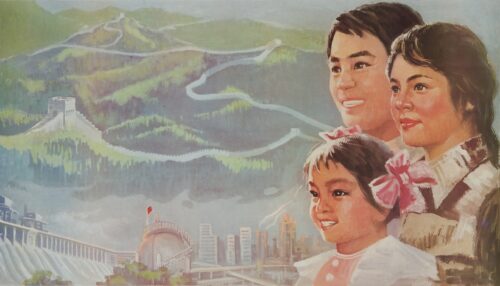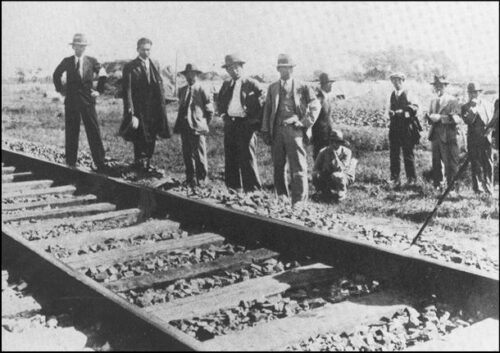This Week in China’s History: September 22, 1630
“F*** his mom!”
Not usually the phrasing you expect to find captioning a museum exhibition. But, as anyone who has traveled in China knows, awkward translations into English are common. Sometimes these are mistakes, but most often they are just out of place — things that aren’t wrong, but not what you expect to find in a certain context.
Like “F*** his mom!”
But this is (or at least was, a few years ago) the boldface type explaining the defiant battle cry of Yuán Chónghuàn 袁崇煥. Executed for treason in 1630, Yuan had just four years earlier achieved one of China’s greatest victories on the battlefield and ascended to the highest ranks of government, before enduring a calamitous fall from favor that ended in the gruesome lingchi execution: death by a thousand cuts.
Yuan was born in Dongguan, Guangdong, far from the northern reaches of the empire where he would achieve both fame and notoriety. After passing the imperial examinations in 1619, his first posting was to Fujian.
What may have been most crucial to his eventual success, though, was his movement between China’s far south and the capital at Beijing. Traveling a route common to European Jesuits, Yuan became familiar with, and then one of the first Chinese advocates of, European artillery. Along with Sūn Chéngzōng 孫承宗, who would later become the Ming’s minister of war, Yuan arranged for the deployment of Portuguese-made cannons north of the Great Wall in the 1620s and found himself at the right place and time when the Jurchens (the name “Manchu” wouldn’t be applied until 1636) under Nurhaci began menacing the northern frontier. When Jurchen forces captured the city of Guangning (now Beihe) in Liaoning, Yuan — a civilian official — took it upon himself to personally assess what happened. Upon his return south of the wall, he reported to the emperor, as translated in Frederick Wakeman’s The Great Enterprise, “Give me horses, soldiers, money, and provisions, and I alone can hold” the pass through the Great Wall.
Yuan’s confidence won the support of the Tianqi emperor, who gave him command over troops in Liaodong. In position to back up his boast, Yuan set about fortifying the city of Ningyuan at the northeastern extreme of Ming control.
But as this happened, political infighting in Beijing undermined him. Court opponents prevented Yuan from obtaining imperial audiences, and then orchestrated the removal of his ally, Sun Chengzong. Eventually, a new Ming policy overturned the earlier dictate, and the court ordered Yuan to withdraw from the northern frontier to Shanhaiguan.
Yuan refused, replying famously with the profanity translated on his memorial hall in Dongguan as ““F** his mom! Hit the hard” [sic]. (Joel Martinsen, on the late lamented site Danwei.org, suggests that a plausible translation of Yuan’s response was, “F*** that! Let’s give it all we have!” rather than the literal translation in Dongguan. Personally, I feel like the exclamation “Motherf***er!” might capture the moment best.)
Whatever the nuances of Yuan’s profanity, the fact is that he remained at Ningyuan alone, undersupplied and without the support of his superiors. Nurhaci, in the winter of 1626, attacked. The Ming’s revised defensive posture left Yuan with just 20,000 troops to defend the city, while Nurhaci approached with an army of nearly 200,000.
But the battle began poorly for the Manchus, who misjudged the range of the Ming cannons and camped too close to the city, suffering tremendous losses even before they began their assaults. Historian Kenneth Swope, in his book The Military Collapse of the Ming Dynasty, details how the defenders employed Portuguese cannon, burning oil, and gunpowder dropped from above to hold off the siege. The Manchus withdrew after six days, though not before they laid waste to a nearby granary, killing more than 10,000 civilians (the granary, located on an island, was thought to be safe, but became vulnerable when the river that protected it froze over).
Yuan Chonghuan’s unexpected victory appeared poised to reshape the future of what would become the Ming-Qing conflict: Nurhaci, the great khan of the Jurchen, was wounded by cannonfire and never recovered, dying seven months later at the capital, Mukden. His son, Hong Taiji, responded to the setbacks by suggesting a framework for peace with the Ming, even softening a first letter that demanded the Chinese atone for moral affronts against the Jurchens. In the midst of all this, the Tianqi emperor died, undermining support for Yuan Chonghuan’s enemies and emboldening the frontier commander.
But this is where Yuan made his fatal mistake. Overconfident after rebuffing the Manchus’ overtures for a negotiated settlement to their differences, Yuan resumed his earlier policy of fortifying the frontier defenses and pushing for a “forward policy.” Within five years, Yuan promised, he would recover all the territory lost to the Jurchens.
He wouldn’t live to see five more years.
Yuan’s undoing came as he tried to clamp down on a rogue officer named Máo Wénlóng 毛文龙. Described by historian Timothy Brook as a “swashbuckler” and “semi-warlord,” Mao commanded Ming naval forces along the northeast coast, a position he used to enable, and perhaps conduct, smuggling operations that left him wealthy and well-supplied. Seeing his strategic importance and ambivalent attitude toward authority, the Manchus sensed an opportunity and, in Brook’s words, “quietly opened back channels to see whether [Mao] could be induced to come over to them.”
As rumors that Mao was wavering — or worse — swirled, Yuan visited his erstwhile comrade-in-arms and ordered him to relocate. Moving away from the frontier would prove Mao’s loyalty, bring him under closer Ming supervision, and also diminish his ability to get money or arms from the Manchus. Mao refused to move. After several days spent evaluating Mao’s command, Yuan concluded that Mao had betrayed, at the very least, his emperor’s trust, and charged him with treason and corruption. In front of Mao’s astonished troops, Yuan Chonghuan decapitated Mao with one stroke of a two-sided sword.
Yuan may have been correct that Mao was a traitor, but his actions had wide-ranging unintended consequences. As Tim Brook put it in The Troubled Empire, “Yuan’s dramatic act may have prevented him from switching sides, but the turmoil distracted him from detecting the swift offensive Nurhaci’s son Hong Taiji was preparing.” Jurchen troops were soon in the outskirts of Beijing. Enemies at court mounted a whispering campaign against Yuan. How was it, they wondered, that the man who had appointed himself protector of the frontier was caught unawares when the Jurchens attacked? Perhaps it was Yuan, not Mao Wenlong, who was the traitor. How else to explain how such a capable general had allowed the Jurchens to march to the very walls of the capital? No on had authorized Yuan to execute Mao Wenlong; was this just a ploy to cover up his treachery?
The court found its scapegoat. Yuan Chonghuan was brought before the emperor and convicted of treason. He was sliced up, dismembered, and beheaded for his alleged crimes.
Yuan was rehabilitated some years later, and today, shrines to him can be found in both Beijing and his hometown of Dongguan. The rehabilitation was of course too late: His family was sent into exile and, with no sons, Yuan’s line was all but ended. One can imagine if, in some afterlife, Yuan learned that he had been cleared of the charges that had led to his execution, he might posthumously exclaim, “Motherf****.”
This Week in China’s History is a weekly column.
